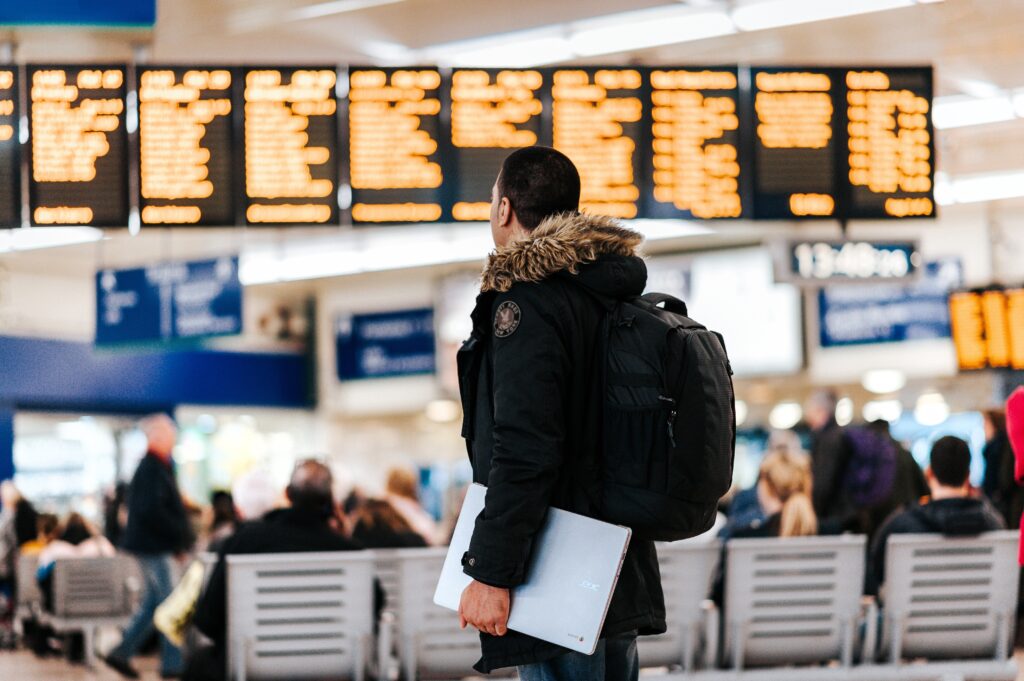Tips for transgender, genderqueer, and nonbinary travelers
With the holiday season approaching, travel can be unavoidable and more fraught than usual. Here are some helpful tips for those traveling as trans, nonbinary and GNC.
The International LGBTQ+ Travel Association (IGLTA) has an exhaustive list of ways transgender, genderqueer, and nonbinary travelers can travel safely, so instead of reinventing the wheel, we thought we’d give you a glimpse at what you should know before you go, but check out the IGLTA’s in-depth travel tips on their website.

Research Your Destination
Before you go, do the extra legwork and research to familiarize yourself with the law, policies, and attitudes of your travel destination. You should also be prepared just in case you are misidentified. Why? Because many people are not educated or well informed to know the difference between gender identity, gender presentation, and sexual orientation. According to the IGLTA, whether or not you identify as a specific sexual orientation or gender identity (SOGI) minority, you may be perceived as belonging to a particular SOGI category.
Prepare Your Airline Travel Documents
If you’re traveling by air, make sure your name, gender, and date of birth on your airline reservations match the information displayed on your government-issued documents such as your passport and photo ID. It will help you avoid airport security delays and give you some peace of mind before you head to the airport. If you’re a frequent flier in the U.S., you should consider enrolling in the TSA Pre-Check program or enrolling in the Global Entry, which includes the TSA Pre-Check program.
Smart Packing Tips
Remember that anything packed into your suitcase will be screened at the airport, including prosthetics, medical accessories (ice packs, syringes, etc.), and prescription medications, such as hormones. Pack these items separately if you plan on boarding the aircraft. To avoid airport delays, the IGLTA recommends that you inform airport security that you are carrying essential medical items. You can also request a private screening.

Know Airport Security Rules
Be aware that most countries use Advanced Imaging Technology (AIT) to scan passengers for dangerous items when passing through airport security. If a binder or prosthetic registers as an “anomaly” during the AIT scan, security officers will require another screening. You can opt-out of having an AIT scan, but you will be required to undergo a thorough pat-down, according to the IGLTA. You should bring a witness with you to observe the process if you request a private screening.
Some countries have legal protections for nonbinary travelers, but some do not. Before you book your trip, make sure you are comfortable traveling to your desired destination, and that includes making sure you feel comfortable passing through airport security. Again, remember to do the research before you go.
Visit the IGLTA’s website for their full list of travel tips, more in-depth information, and what transgendered, genderqueer, and nonbinary travelers should know about traveling by land and in groups.
This article first appeared in our sister publication, Vacationer






